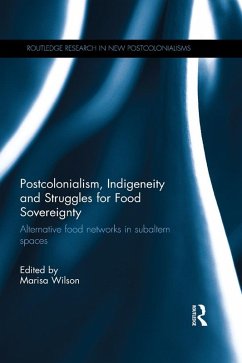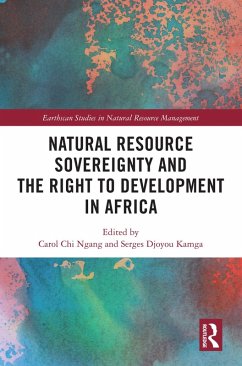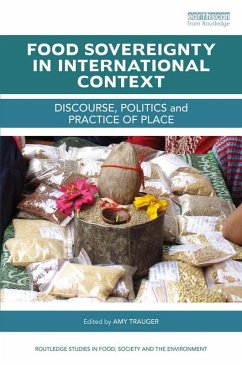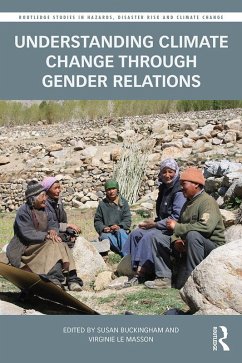
Postcolonialism, Indigeneity and Struggles for Food Sovereignty (eBook, ePUB)
Alternative food networks in subaltern spaces
Redaktion: Wilson, Marisa
Versandkostenfrei!
Sofort per Download lieferbar
43,95 €
inkl. MwSt.
Weitere Ausgaben:

PAYBACK Punkte
22 °P sammeln!
This book explores connections between activist debates about food sovereignty and academic debates about alternative food networks. The ethnographic case studies demonstrate how divergent histories and geographies of people-in-place open up or close off possibilities for alternative/sovereign food spaces, illustrating the globally uneven and varied development of industrial capitalist food networks and of everyday forms of subversion and accommodation. How, for example, do relations between alternative food networks and mainstream industrial capitalist food networks differ in places with cont...
This book explores connections between activist debates about food sovereignty and academic debates about alternative food networks. The ethnographic case studies demonstrate how divergent histories and geographies of people-in-place open up or close off possibilities for alternative/sovereign food spaces, illustrating the globally uneven and varied development of industrial capitalist food networks and of everyday forms of subversion and accommodation. How, for example, do relations between alternative food networks and mainstream industrial capitalist food networks differ in places with contrasting histories of land appropriation, trade, governance and consumer identities to those in Europe and non-indigenous spaces of New Zealand or the United States? How do indigenous populations negotiate between maintaining a sense of moral connectedness to their agri- and acqua-cultural landscapes and subverting, or indeed appropriating, industrial capitalist approaches to food? By delving into the histories, geographies and everyday worlds of (post)colonial peoples, the book shows how colonial power relations of the past and present create more opportunities for some alternative producer-consumer and state-market-civil society relations than others.
Dieser Download kann aus rechtlichen Gründen nur mit Rechnungsadresse in A, B, BG, CY, CZ, D, DK, EW, E, FIN, F, GR, HR, H, IRL, I, LT, L, LR, M, NL, PL, P, R, S, SLO, SK ausgeliefert werden.













